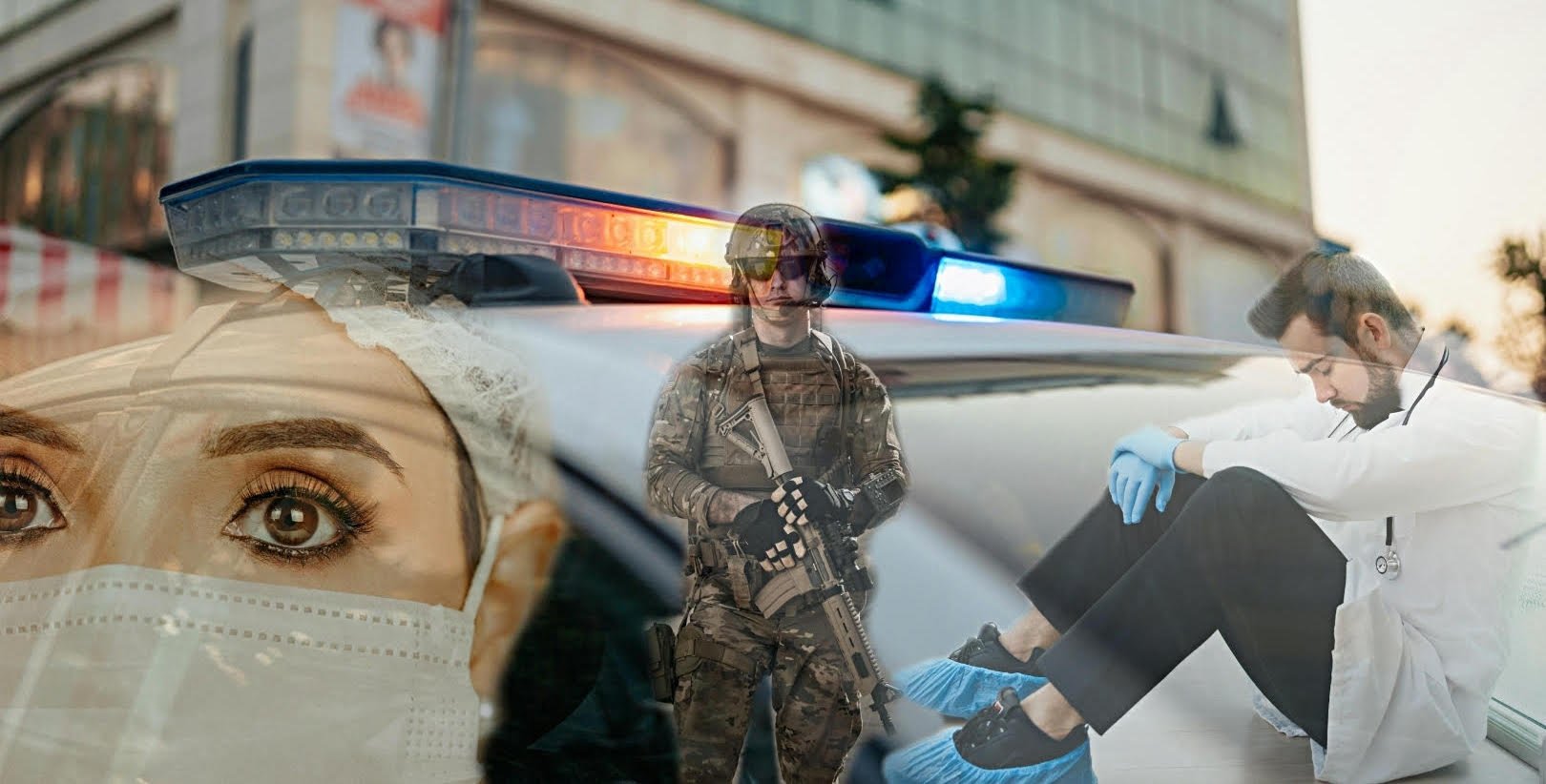
Therapy For Workplace Trauma

When Trauma Hits You In The Workplace, It Can Be Hard To Get Through The Day
Are you a first responder, emergency personnel, or front-line health care worker who has seen too much in your area of work and the stress has been getting to you?
Were you involved in an incident at work that filled you with terror or fear and can’t seem to move past it?
Did you survive military conflict or something terrible that occurred in the line of duty as a law enforcement offer and continue to notice having intense emotions from that experience?
When it comes to certain jobs, there is no time to decompress from one high-stress situation after another. You’re required to focus on the vital task at hand and shove down the horrific things you’ve seen or experienced.
Over time, this takes a toll on you. You may find yourself experiencing the following:
Being in a constant state of agitation and unable to relax.
Difficulty turning off pictures, smells, sounds, thoughts, or emotions related to the event (e.g., the sounds of screams, the smell of fire or smoke, cycling thoughts of “I should have done something” or “If only…”).
Avoiding reminders of the situation.
Feeling numb and detached all the time.
You’d like to be able to return to life as it was but you just can’t shake off the memory of what happened. It’s difficult to get through the day and you’re seeking relief.
Have any questions ? Send us a message!

Trauma In The Workplace Has Become An Increasing And Disturbing Fact Of Life
Certain professions pose a higher risk for mental health issues due to chronic exposure to varying degrees of violence, trauma, and acutely stressful situations. The recent pandemic amplified these stressors. Specific professions associated with a higher risk for PTSD include: military service, law enforcement, firefighters, first responders, and other health professionals.
When you chose this career for yourself, you were aware there was a certain level of stress you were signing up for but you didn’t realize the long-term impact this would have on your mental health, your relationships, your enjoyment of your work, and your well-being.
Thankfully, traumatic stress does not have to be a permanent way of life. With the help of an experienced trauma therapist, you can return to loving your job again and focusing on what matters most.

Trauma-Focused Treatment To Address Critical Incidents At Work Will Help You Feel Re-energized to Go To Work Again
Trauma-focused treatment aims to do the following:
Reduction or removal of distress caused from upsetting event(s)
Prevent worsening of acute stress or PTSD symptoms
Prevent development of PTSD and other related mental health issues such as anxiety or depression
Due to the circumstances surrounding traumatic events and each individual’s personal preference, there are several options to choose from when deciding how to proceed with trauma treatment. For those who have experienced a disturbing event in a collective setting such as a violent or stressful incident at work, there are options to do group-focused trauma treatment. The benefits of group-focused work are:
No need to talk about the trauma in order for treatment to be effective.
Each person’s privacy and confidentiality are maintained since no talking is required.
People are cared for more quickly by involving larger segments of the affected community.
Treatment can be done in an intensive format (such as a half-day or full day) thereby speeding up the process of recovery from symptoms.
For those who prefer a more individual setting, one-on-one sessions are available. In both instances, proven effective trauma treatment approaches will be utilized.
These approaches have been successfully used in various crisis situations throughout the world including: first responders and civilians who survived a gas explosion in Peru, 2017 massive earthquake in Mexico, and the 2019 mass shooting in El Paso, Texas. Whatever option you choose, you will be glad to know that rapid relief can occur in just a short period of time.

But You May Still Have Questions About Trauma Treatment
-
At times it can be hard to recognize the difference between everyday stress and trauma-related stress. Easy to spot signs include:
Feeling suddenly panicked
Dreading going to work
Unwanted, disturbing thoughts or memories
Feeling inexplicably tense or wound up
Avoiding memories, thoughts, or feelings
Feeling frightened, as if something awful is about to happen
Feeling irritable, cut off or isolated from those around you
Difficulty concentrating or sleeping
Trouble feeling happiness or pleasure
-
There are a number of options including direct help at your place of work or in your community for both small and large group settings. Specifically, I am available to come to your workplace or community to offer support. Individual sessions are also available for those who prefer or need additional care.
With regards to group-focused treatment, it is important to know that it is NOT:
Group therapy. It is an individual intervention designed to provide symptom relief, conducted in a group setting.
Stress management. Unlike stress management, which teaches people how to manage the impact of major stress through the use of coping skills, the goal of trauma treatment is designed to reduce or eliminate disturbing emotions, images, body sensations, or thoughts.
Debriefing. **Crisis debriefings are conducted in a group setting after a crisis or critical incident is over. It is a facilitated discussion to provide individuals an opportunity to process the emotional impact of what occurred. Trauma treatment, on the other hand, is designed to provide acute stress symptom relief both while the crisis is ongoing as well as afterwards.
**For those interested in a crisis debriefing also known as psychological first aid, please reach out to discuss this option in more detail.
-
Because every situation and every person is unique, there is no set answer. Some individuals find significant relief after one hour of treatment whereas others need more time. Either way, those who seek trauma focused treatment start to notice immediate results quickly.

Rediscover Your Spark in the Work You Do
When traumatic events happen at work, it can be hard to talk about. It might feel like there’s never a really good time to say anything. Or you might be afraid of being judged for not coping well. Or you might even believe that the stress is part of the job and that you need to be strong and push through.
All of this leads to feeling alone and isolated and unfortunately exacerbates the symptoms you’re experiencing.
The hopeful news is that people can and do get better with treatment. If you’re ready to work on moving past the hold the traumatic event(s) has on you, please contact me at 210.802.2697 to schedule a free 20-minute phone consultation.




